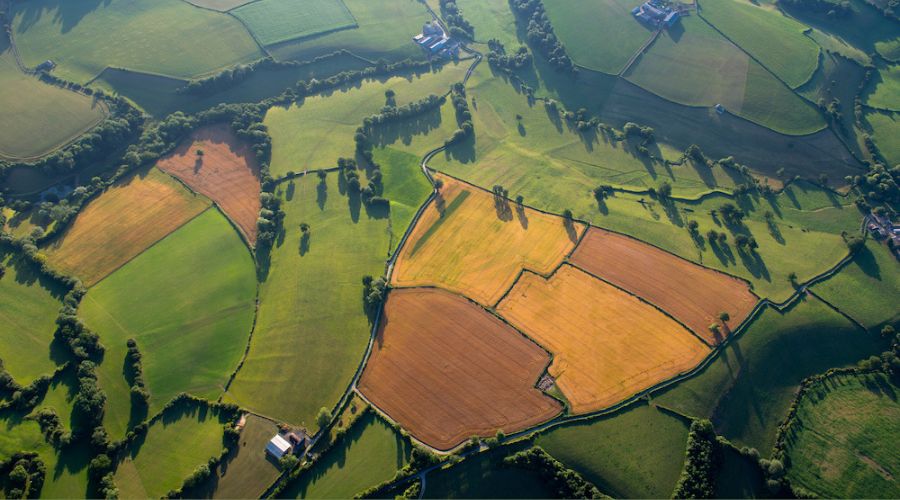SFI cap welcomed by farming groups
28th March 2024
Farming groups have expressed relief that the government has listened to the sector’s growing fears that environmental schemes could pose a threat to food security.

Defra has capped the percentage of land that can be entered into new SFI schemes, across six of the nine actions. The move follows growing concerns that too much land is being taken out of food production.
Around 1% of farmers who applied for the SFI in 2023 entered 80% or more of their farm into actions that took land out of food production.
Responding to the concerns, Defra has now introduced a 25% cap on the percentage of land that can be entered into six actions.
Defra said these actions were chosen as they are designed to be carried out on parts of the farm and smaller areas within land parcels.
The remaining two actions are designed to be carried out on strips.
One of the remaining actions, NUM3 (legume fallow) can play an important part in an arable rotation, Defra said. It builds soil fertility for the next arable crop and allows farmers to control things like black grass without chemicals.
READ MORE: Farmers share concerns about loss of food-producing land
The six limited area actions are:
- Take improved grassland field corners or blocks out of management – IGL1
- Winter bird food on improved grassland – IGL2
- Pollen and nectar flower mix – AHL1
- Winter bird food on arable and horticultural land – AHL2
- Grassy field corners and blocks - AHL3
- Flower-rich grass margins, blocks, or in-field strips – IPM2.
The new approach does not apply to SFI applications that have already been submitted, agreements that have already been offered or existing SFI agreements.
“It’s not an either or”
NFU deputy president David Exwood welcomed the announcement. He said it “sets out to achieve a greater balance” between supporting food production alongside protecting and enhancing the environment.
“We have long said, it’s not an either or,” he added.
There has been particular concern about how the SFI will impact tenant farmers. Mr Exwood added: “An important principle of ELMs is that it does not disadvantage the tenanted sector and this will help keep active farmers on the ground while encouraging them to farm more sustainably.
“We will look through the detail when it comes to see how this will impact future land management choices.
“Further development of the SFI and ELM schemes is crucial if we’re to ensure a future agricultural sector which is resilient and thriving, with farmers doing what they do best; contributing to our national food security by producing sustainable, climate-friendly food alongside protecting our environment.”
READ MORE: What government grants can farmers apply for now?
The AIC also welcomed the news, saying it gives its members greater clarity and certainty, whilst providing reassurance that the government is listening to concerns over food security.
It also called for a statutory, independent food security committee.
Impact on scheme take-up
The Country Land and Business Association, however, warned that the cap could hit take up of the schemes.
CLA president Victoria Vyvyan said: “Food production and nature are not binary choices. We have to do both. We understand the minister’s need to look at some of the individual actions again, but the principle of ELMs is the right one. […]
“Introducing caps at this early stage may only delay Defra’s target of getting 70% of farms in land management schemes, hindering our ability to produce food while protecting the planet.”
Calls to go further
NSA chief executive Phil Stocker said: “It’s a welcome relief that Defra has listened, and acted quickly to make changes that will limit farmers entering large amounts of their land into actions that have a focus away from sustainable farming and food production.
“NSA is hopeful the changes will ensure the scheme continues to support farmers to continue actual farming, producing food sustainably alongside improving the environment.”
However, Mr Stocker said now is the time to tighten up some of the loopholes in the SFI. He called for the 25% limit to be extended to tree planting and rewilding options across the Environmental Land Management Schemes (ELMS) on existing farmland.
Phase three of Landscape Recovery should also be paused until the impact of the first two rounds has been examined, he added.
“Given that Defra is listening and taking action, then NSA asks for action to be taken to prevent what we are seeing now, particularly in upland areas, where many small family farms and tenants are being squeezed out of large private estates and large land holdings owned by utility companies and corporate businesses.
“Food security is finally being recognised as crucial whereas when these schemes were first thought out it was far less so. […]
He concluded with the warning: “Food production must be at the heart of this scheme going forwards to ensure many small businesses are not lost. Once gone they will be gone forever and their contribution to local economies and communities will be lost.”
Read more business news.
